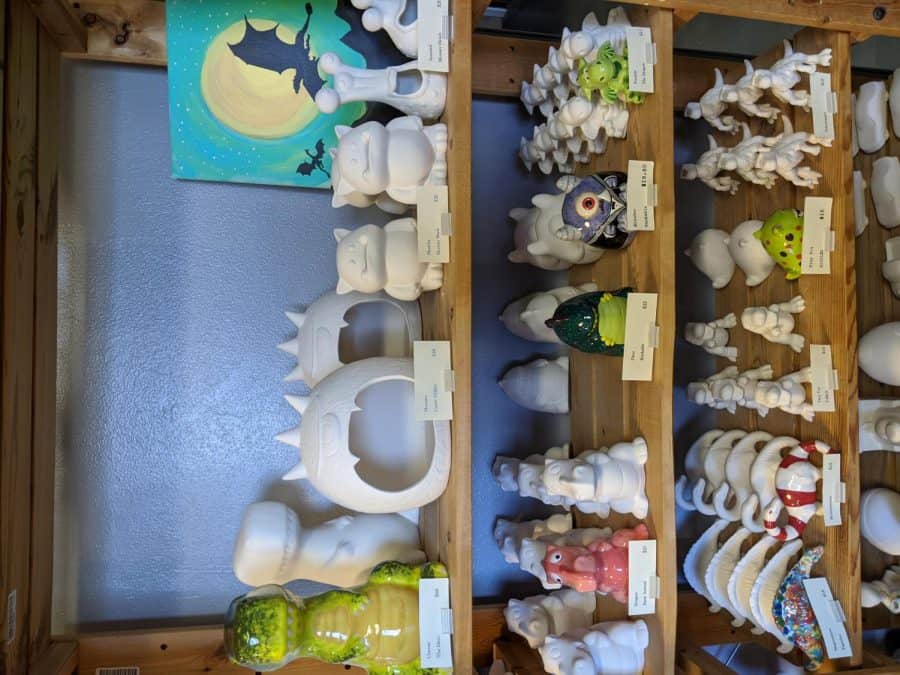Tuscaloosa Arts Council celebrates 51st anniversary
September 22, 2021
The Tuscaloosa Arts and Humanities Council is an umbrella organization designed to “promote and encourage the arts and humanities in Tuscaloosa County.”
The council’s first ever co-chairs, in 1970, were The University of Alabama’s very own Doris Leapard and Allen Bales.
This council has been a cornerstone of the Tuscaloosa arts community and has provided UA students with local outlets to practice the crafts they learn in class every day.
After pushing back its big 50th-anniversary celebration last year, the council hasn’t yet decided how it will make up for it this year. Celebration or not, the council has a full calendar for the upcoming year to keep the arts scene in Tuscaloosa as eventful as ever and make up for lost time.
The first organizations under the council included the Tuscaloosa Civic Chorus, Tuscaloosa Community Singers, Tuscaloosa Community Theatre, Tuscaloosa Men’s Camelia Club, Tuscaloosa Preservation Society, West Alabama Art Association and the West Alabama Gospel Singers, most of which are still operating today.
A Timeline Through the Years
1974: The Arts Council’s first program, Schools Using Greater Arts Resources, or SUGAR, was established. The program evolved to become Special Teaching Resources in the Arts, or SPECTRA.
1976: The Bama Theatre was leased by the Arts Council in a joint project between the Tuscaloosa County Parks & Recreation Authority and the University and became a performing arts center.
1983: The grand opening of the Junior League Gallery was at the Bama Theatre. The balcony lobby was converted into a gallery space as a project by the Junior League of Tuscaloosa.
1985: The first Annual West Alabama Juried Art Show was held at the Junior League Gallery.
1985: The first season of Bama Fanfare, an educational series using music to illustrate and teach different historical events, was presented.
1986: A major renovation of the Bama Theatre was completed.
1988: The Arts Council became partners with Westwood Elementary School in Coker, Alabama, through the Chamber of Commerce of West Alabama’s Adopt-a-School program, which ensures local schoolchildren have access to the arts.
1989: Druid Arts Awards was established as a recurring ceremony.
1999: A 35 mm projector was purchased through Stars of the Silver Screen campaign. The Silver Screen Movie Series was established, which eventually evolved into the current Bama Art House Series.
2009: The first Poetry Out Loud competition in the state was held at the Bama Theatre in cooperation with the Alabama State Council on the Arts.
2013: Dinah Washington Cultural Arts Center grand opening.
2014: Proludio Digital Projection System was installed at the Bama Theatre. The system replaced the platter system installed in 1999 that utilized 35 mm film.
2017: Digital Marquee was installed at the Bama Theatre. The original 1938 neon BAMA lettering was preserved along with other elements around the new marquee.
2018: The West Alabama Arts Education Collaborative was established in cooperation with the Alabama State Council on the Arts.
Future Events
For the next few weeks, fans of whimsical contemporary folk art can view the Marian Baker exhibit at Hotel Indigo starting at 8 a.m., every day of the week. Baker is a resident of Alabama and gains most of her inspiration by traveling around the state.
This upcoming weekend is the final performance of the musical “Always … Patsy Cline,” hosted at Shelton State Community College.
“Always … Patsy Cline” follows the friendship of beloved country star Patsy Cline and Houston-born fan Louise Seger and their continued contact until Cline’s untimely death in 1963. The show has been described as both hilarious and heartbreaking and needs only a simple two-woman cast and six-piece band.
On Thursday, Sept. 23, the Bama Art House will host the Manhattan Short Film Festival, featuring up-and-coming young filmmakers Wyatt Rockefeller and Edson Oda. Audience members will have the opportunity to vote for their favorite film at the end so that the Bama Art House can award the winning filmmaker.
Most of these events are free to attend or under $10, thanks to the support of the Tuscaloosa Arts Council.








